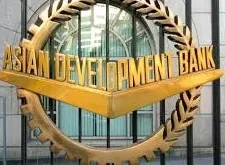
Aftab Maken
Islamabad: The Federal Board of Revenue (FBR) is facing an escalating crisis, reporting a massive revenue shortfall of Rs 1,027 billion during the first eleven months (July 2024 to May 2025) of the current fiscal year.
This alarming gap, which includes a Rs 206 billion deficit in May alone, has sent shockwaves through Pakistan’s tax and fiscal policy circles, raising serious concerns about the nation’s financial stability and upcoming budget.
The revised tax collection target for the fiscal year 2024-25, already lowered from the initial Rs 12,913 billion to Rs 12,334 billion, appears increasingly elusive. To meet this revised goal, the FBR is now confronted with the Herculean task of collecting an unprecedented Rs 2,121 billion in the final month of June 2025. This daunting figure represents nearly 17.2% of the entire year’s target, a feat most experts believe is exceptionally challenging, if not impossible, under the current economic conditions.
In May, the FBR managed to collect Rs 904 billion against a monthly target of Rs 1,110 billion. This pushed the cumulative revenue for the July-May period to Rs 10,213 billion, falling significantly short of the Rs 11,240 billion target set for these eleven months. The shortfall in May alone widened the gap from Rs 821 billion accumulated over the preceding ten months, indicating a worsening trend as the fiscal year nears its close.
Economists and policy analysts attribute the substantial revenue shortfall to a combination of deep-rooted structural inefficiencies within the tax administration and a national economy beset by persistent challenges. High inflation rates have eroded purchasing power, leading to suppressed consumer demand and, consequently, lower indirect tax collections. Concurrently, ongoing energy shortages and low industrial output have significantly impacted corporate profitability and employment, thereby reducing direct tax revenues.
“To expect the FBR to garner Rs 2.1 trillion in a single month would necessitate an almost fantastical surge in revenue collection, far removed from current economic realities,” commented Dr. Khalid Mehmood, a respected tax policy analyst. “Even if the FBR resorts to aggressive enforcement drives or secures substantial advance tax payments, bridging this colossal gap without inflicting severe distortions in the market seems highly improbable.”
The consistent failure to meet collection targets underscores the urgent need for comprehensive reforms. Issues such as a narrow tax base, widespread tax evasion, complex tax laws, and a plethora of exemptions and concessions for privileged sectors continue to plague Pakistan’s fiscal framework.
This significant revenue underperformance carries broad and severe implications for Pakistan’s fiscal discipline. With negotiations for a new bailout program with the International Monetary Fund (IMF) at a critical juncture, any slippage in tax collection could derail fiscal consolidation targets, a key component of IMF conditionality. Such a scenario would likely undermine investor confidence, which is already fragile.
Sara Aziz, an economist at a prominent Karachi-based think tank, warned of the potential fallout. “Persistent revenue shortfalls could compel the government towards increased domestic and foreign borrowing, potentially leading to more inflationary financing if it resorts to printing money. Alternatively, we might see painful and politically difficult expenditure cuts in essential public services and development projects,” she stated. “Crucially, this underperformance significantly weakens the government’s negotiating leverage with the IMF, potentially leading to stricter conditions or delays in financial assistance.”
The government’s ability to finance its budgetary allocations for development, defense, and social safety nets is directly threatened by the revenue crisis. A higher fiscal deficit, an almost certain outcome of the current shortfall, could trigger a fresh cycle of austerity and economic hardship.
In a bid to mitigate the crisis, FBR sources have indicated that “all possible means” will be deployed in June to maximize collections. These measures are expected to include pursuing advance tax payments from large corporations, accelerating audits of suspected under-filers, and launching stringent enforcement actions against defaulters.
However, many analysts remain skeptical about the efficacy and sustainability of such tactics. While these “extraordinary measures” might provide a temporary, cosmetic boost to revenue figures, they are unlikely to address the underlying systemic problems. Moreover, aggressive tactics could further alienate taxpayers and create an environment of uncertainty, potentially harming business sentiment and long-term compliance.
There is a growing consensus among economic experts that Pakistan must move beyond short-term fixes and commit to a sustained agenda of comprehensive tax reforms. “The perennial cycle of revenue shortfalls followed by last-minute panic measures will inevitably continue unless we address the foundational issues,” urged Usman Qureshi, a seasoned tax consultant. “The government must demonstrate the political will to expand the tax base by bringing untaxed or undertaxed sectors, such as wholesale, retail, real estate, and certain segments of agriculture, effectively into the net. Digitizing tax enforcement processes to enhance transparency and reduce human discretion, and decisively ending the culture of tax exemptions and statutory regulatory orders (SROs) that disproportionately benefit elite and vested interests, are critical steps.”
Further recommendations include simplifying the tax code, improving the capacity and integrity of tax officials, and fostering a culture of voluntary tax compliance through better public service delivery and awareness campaigns. Without these fundamental changes, Pakistan’s fiscal stability will remain precarious, and its reliance on external financing and recurring bailout packages will likely persist. The current shortfall serves as yet another stark reminder of the urgent need for a paradigm shift in the nation’s approach to taxation and fiscal governance.
 BeNewz
BeNewz




